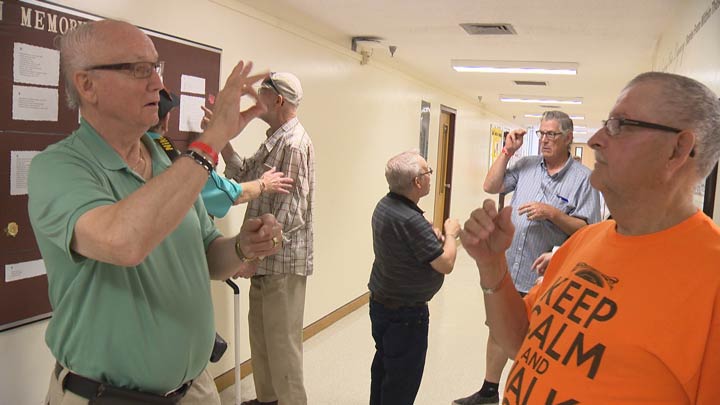Saskatchewan’s School for the Deaf has been closed for many years.

Alumni of the school returned to its hallways on Wednesday to celebrate the school’s 85th reunion.
READ MORE: Concerns raised over sign language used in Saskatoon schools
“It’s just so nice to be here and see all these old friends again,” Carla Yager, one of the school’s alum, said through an interpreter.
“It’s just so positive to be here together, it’s so different than it used to be, I’m proud to be here today.”

Get weekly health news
The school opened in 1955, giving students the opportunity to get an education while learning about their loss of hearing as well as sign language and lip reading.
It closed in the early ’90s and is now a part of the University of Saskatchewan‘s Language Centre.
Organizers used Wednesday’s event to shed light on their ongoing human rights initiative for people who are deaf and hard of hearing.
“If you can’t communicate, or be involved in a community, you suffer from emotional problems and isolation,” said Sarah Vermette, a deaf and hard of hearing activist.
“If you don’t develop language by a certain age you have long-term mental damage, so we need sign language programs.”
READ MORE: Saskatchewan launches Text With 911 for hearing, speech impaired people
The group’s focus is to create a sign language centre for babies and toddlers.
“Even if a child is using devices and verbal auditory therapy, which is a good thing, they should still have access to sign language so they can have 100 per cent word recognition,” Vermette said.
The group is also hoping to make it easier to access hearing therapy and testing in northern, rural communities.


Comments